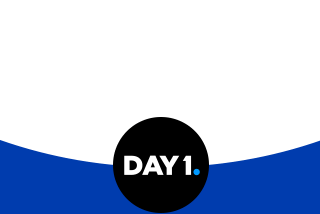This is it. The moment you’ve been waiting for. And like many before you, have no idea how to respond to the acceptance email saying that YOU GOT THE JOB!
First things first - congratulations! You most likely spent a lot of time searching for the right company and position, and now you’re just one small step away from finalizing the hiring process and accepting the job offer.
Don’t worry, we’re here to help you out and explain how to react to what comes next, so at the end of the day, both parties are satisfied. You’ll get the conditions that make you comfortable and your future employer will finish the long recruitment process, sealing the deal for the position you were applying for.
Remember, this moment will most likely define your relationship with your future HR department, and if you’re corresponding with your potential superior, this is when you make your first formal impression.
The impression they get will likely stick with you for some time, so it’s worth taking the time to think through what your response will be. So, let’s start from the top.
How long should you take to accept a job offer?
It’s very common to feel overwhelmed when you open up that email that reads “We would like to welcome you to our family at…”. But that shouldn’t cause you to do anything rash. Usually, your first thought will be “I have to respond ASAP with all the details and questions so that nobody takes my place”.
Recruitment processes don’t work that way.
Unless you were told that the spot you’re applying for is a very urgent matter, you’re in a place to take some time to allow for the news to sink in. However, it’s best if you respond quickly, just to confirm that you received the email and you’re thrilled to get this news.
This is when you can ask for a moment to reflect on what follow-up questions you’ll want to ask and dispel any doubts that might have popped up during the recruitment process. It’s ok to ask the recruiter for 2-3 days for you to digest this life-changing fact and gather your thoughts.
It’s best if you explain why you need this time for yourself - otherwise, a misunderstanding might take place, that might not work out on your behalf. Asking for a moment is a good idea even if you don’t have any questions or doubts right away. They might come up after you’ve slept on it.
In case you’re wondering what those follow-up questions could be, we’ve prepared a list of common topics that are mentioned at the end of the hiring process.
Take your time to craft some of your own questions. You might have already gotten the answers to a few of them and it’s best you don’t repeat yourself - unless you want to confirm previous arrangements. Also, this is the last moment you can negotiate the terms of your contract.
- When you should send the final response for the job offer
- Salary, bonuses, and your compensation in general
- Employee development programs (like ours at P&G which allows you to dive into meaningful projects from Day1)
- Working hours, home office vs working on site
- Insurance and pensions plans
- Benefits such as Wellness Programs and Stock Purchase Programs
- Anything that makes you feel uncomfortable
Accepting a job offer over the email
Now that you’ve created a list of questions and thought through any topics you’d want to mention to the recruiter, it’s time to craft the perfect response email.
You’ve written hundreds, maybe even thousands of emails, but it’s unlikely you have loads of experience writing ones like this. What should an email like this content and what should you avoid?
Time for a formal response expressing gratitude
Even if you’ve been corresponding with your future manager who joked around in some emails, it’s time to put on a serious face. Your acceptance response might need to contain information that is required for your contract and that email might be forwarded to other people.
It’s best you don’t kick off your relationship with a joke they might not understand. You’ve got one foot in the door of your future workplace, so it’s time to act like it. Also, since you’re happy with this news, it’s good to show that in your message - even a simple “thank you” or “I’m happy to be joining your team” will go a long way.
Your email address
Hopefully, you’ve been using a professional email address - and by this, we mean something like johndoe@gmail.com and not a high school email containing silly phrases or whatnot. If that’s the case, this is the last chance you have to respond with a proper, professional email address.
Email title
You’ll most likely be responding to an email thread that contains all previous arrangements. If you’re responding with a new email, it’s a good idea to mention the job offer ID in the title and/or the position you’ll be filling in. Keep in mind:
- No emojis,
- Best if the title won’t be longer than one sentence
- Around100 characters should be enough
Formalizing any arrangements
This is the moment you should confirm any arrangements you made with the recruiter. You might have talked over topics over a phone call, so it’s a good idea to have them in writing and send them over via email.
Doing this ensures that any interested party who is CC’d will be aware of all the details. It also helps avoid any misunderstandings and allows you to go back and check what the initial arrangements were if you need to in the future.
Accepting a job offer over the phone
In the case you’ve been asked to accept a job over the phone, the details we discussed above should be also taken into consideration. It’s quite common to give a positive answer over the phone when you get “that” phone call, but it’s also a good idea to ask for written confirmation, via email. That’ll give you some time to gather your thoughts and respond appropriately.
In most cases, there’s nothing wrong with jumping the gun and accepting a job offer the moment you get it, but many people regret not asking questions or negotiating the details of their contracts down the road.
So again, it’s ok to ask for some time - as long as you do it in a professional manner, explaining the reasons why you think you need a moment.
Start your career at P&G
If you’re browsing and researching how to correspond with recruiters, it’s safe to assume that you’re probably looking for a job. We’d like to share some benefits of a career with us at P&G.
There are a lot of perks that drive thousands of specialists around the globe to change the world, daily, in multiple industries. What’s in it for you?
PG offers professional training and development
Many of us put an emphasis on developing our skills - at P&G we believe that professional training, spotting you during work, helping you, and encouraging you to help others is what builds a healthy work environment.
You develop your skills that will influence the products and services we offer all around the world.
Develop your career path in PG
We know that each employee at P&G is unique and that’s why we offer tailored career paths. The skills you bring to the table and acquire along the way build the specialist you are, and it’s in our best interest to make you happy in your career with us.
PG offers challenging and creative work
If you’re keen on working with astounding products, emerging technologies or are full of innovative ideas, be sure to check the wide portfolio of career areas at P&G!
We put a lot of effort into making the work environment both challenging and motivating - and creativity is just one of the ingredients that make us one of the largest consumer goods companies in the world.
Do work that matters!
We want all P&G employees to do something that matters. Being a leader in many markets, we know that the pace of our development is very dynamic - from a product and human resources point of view.
We’re constantly looking for students, recent graduates, and seasoned professionals to join our teams, whom we offer various benefits that we’re constantly improving.

